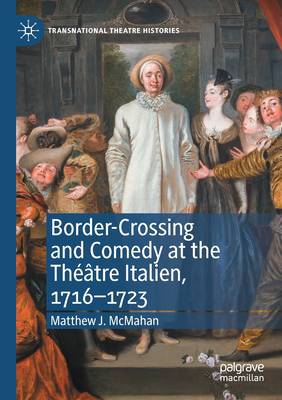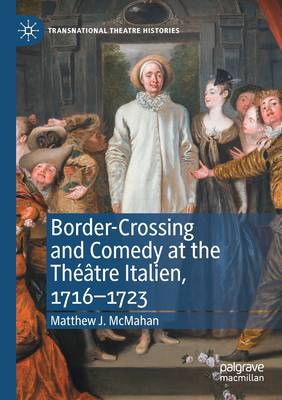
- Afhalen na 1 uur in een winkel met voorraad
- Gratis thuislevering in België vanaf € 30
- Ruim aanbod met 7 miljoen producten
- Afhalen na 1 uur in een winkel met voorraad
- Gratis thuislevering in België vanaf € 30
- Ruim aanbod met 7 miljoen producten
Border-Crossing and Comedy at the Théâtre Italien, 1716-1723
Matthew J McMahanOmschrijving
How do nationalized stereotypes inform the reception and content of the migrant comedian's work? How do performers adapt? What gets lost (and found) in translation? Border-Crossing and Comedy at the Théâtre Italien, 1716-1723 explores these questions in an early modern context. When a troupe of commedia dell'arte actors were invited by the French crown to establish a theatre in Paris, they found their transition was anything but easy. They had to learn a new language and adjust to French expectations and demands. This study presents their story as a dynamic model of coping with the challenges of migration, whereby the actors made their transnational identity a central focus of their comedy. Relating their work to popular twenty-first century comedians, this book also discusses the tools and ideas that contextualize the border-crossing comedian's work--including diplomacy, translation, improvisation, and parody--across time.
Specificaties
Betrokkenen
- Auteur(s):
- Uitgeverij:
Inhoud
- Aantal bladzijden:
- 264
- Taal:
- Engels
- Reeks:
Eigenschappen
- Productcode (EAN):
- 9783030700737
- Verschijningsdatum:
- 1/04/2022
- Uitvoering:
- Paperback
- Formaat:
- Trade paperback (VS)
- Afmetingen:
- 148 mm x 210 mm
- Gewicht:
- 340 g

Alleen bij Standaard Boekhandel
Beoordelingen
We publiceren alleen reviews die voldoen aan de voorwaarden voor reviews. Bekijk onze voorwaarden voor reviews.











